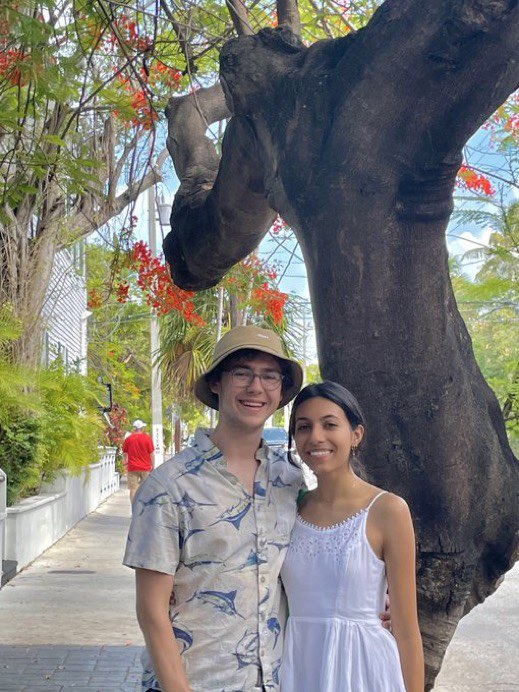How the pandemic bettered some relationships
July 15, 2021
Editor’s Note: This article first appeared as part of the July 6 flipbook.
When UT students Siya and Simon, who have been a couple since 2019, dealt COVID-19 over the last year, they found a few effective coping mechanisms: hiking adventures, long drives and — of course — each other.
Psychology senior Siya Asatkar said although she and her boyfriend started dating the summer before their sophomore year, she feels like they know each other better after living together during the pandemic.
“Outside of my family, he was the only person my age that I really talked to for a very long time,” Asatkar said. “It was isolated, but we were kind of like a single unit through the whole thing.”
Marci Gleason, associate professor of human development and family sciences, said the pandemic could have a positive effect on some relationships because of the stress it places on everyone. Previous studies showed romantic relationships are less satisfying when only one partner is experiencing stress, Gleason said.
This phenomenon, called a stress spillover, can affect the success of a relationship. Since the pandemic is a stressor everyone feels, it makes it easier for one to blame issues on COVID-19 rather than lashing out at their partner.
Gleason said exercise, meditation and getting good sleep are just some ways of handling stress. When it comes to relationships, Gleason said it’s best for couples to understand where each partner is coming from and try to forgive.
Computational biology senior Simon Birk said the stress caused by medical school applications and the Medical College Admissions Test occasionally spilled over into his relationship with his girlfriend. But living together during the pandemic allowed them to learn together and grow.
“There’s a lot of pressure on you to get everything done, get your clinical hours, get your volunteer hours, do well on your MCAT, and that can definitely weigh on me when there’s nothing else to think about and no real avenue to express myself,” Birk said.
Birk said he and Asatkar had to be cautious during the pandemic because his mother’s immune system is highly vulnerable. So, he and Asatkar isolated themselves to help protect his mother’s health.
The couple lived together in a West Campus apartment in seclusion during the summer of 2020, Asatkar said. Birke and Asatkar both said there were a few occasions where they got on each other’s nerves, but the disagreements were more of a learning experience. In some ways, it made them take the relationship more seriously.
“We were forced to adapt. We were forced to really learn how to communicate with each other, which is still a work in progress,” Asatkar said. “I think the loneliness of the pandemic, at least for me, made making the relationship work a lot more important.”
Asatkar said she believes without the pandemic their relationship wouldn’t have grown.
“I learned a lot about myself. I learned a lot about him because I don’t know what a person is like until you have to deal with a difficult situation,” Asatkar said. “I’ve really come to admire the type of person that he is, and it’s benefited our relationship.”











